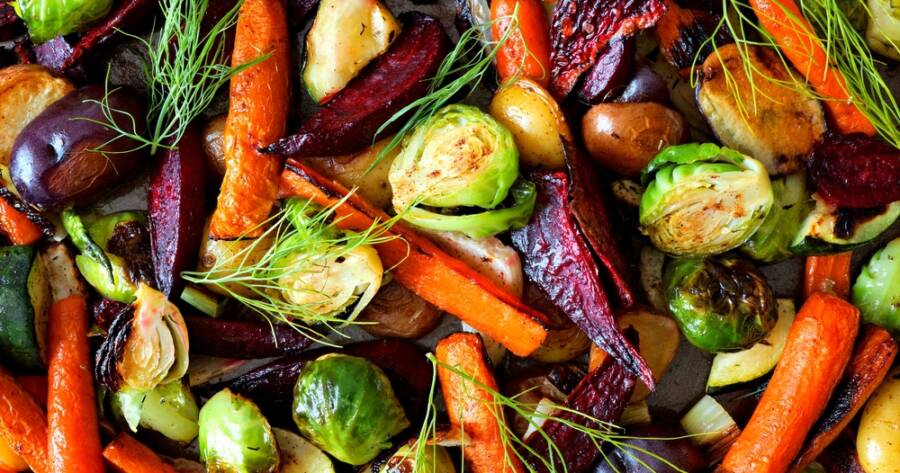As the cold months settle in, winter vegetables become the star of the season. Packed with nutrients and rich flavors, they not only boost your immunity but also bring warmth and comfort to your meals. From hearty root vegetables to leafy greens, eating seasonally ensures that you’re enjoying the freshest produce at its peak. Embrace the benefits of winter vegetables and discover why they should be a staple on your plate this season.
The Benefits of Eating Winter Vegetables
Eating in-season vegetables offers numerous benefits for both your health and your wallet. Winter vegetables, such as kale, Brussels sprouts, and winter squash, are harvested at their peak, meaning they’re packed with nutrients and flavor. Fresh produce picked in season is often tastier, as it’s grown in the natural environment, with the optimal amount of sunlight and nutrients from the soil. This means you can enjoy the full, rich taste and texture of vegetables that are at their freshest.
In addition to flavor, seasonal vegetables tend to be more affordable. As these crops are abundant during the winter, their availability drives prices down. Consuming winter vegetables not only improves your diet but also allows you to make more cost-effective choices while supporting local farmers and sustainable agriculture.
Top Winter Vegetables to Include in Your Diet
When it comes to winter eating, the variety of vegetables available is impressive. Not only do they bring vibrant colors to your plate, but they also offer an array of flavors and textures. Some of the best winter vegetables to enjoy include:
- Kale
- Brussels sprouts
- Winter squash (butternut, acorn)
- Carrots
- Beets
- Sweet potatoes
- Turnips
- Rutabagas
- Cabbage
- Leeks
- Onions
These vegetables are nutrient-dense, providing an excellent source of fiber, vitamins, and minerals that help support your immune system, digestion, and overall health. Make these veggies a regular part of your diet to ensure you’re fueling your body with essential nutrients to get through the winter months.
Nutritional Powerhouse: Why Winter Vegetables Are Great for Your Health
Winter vegetables are packed with vitamins and minerals that are essential for your overall well-being. For example, kale is loaded with vitamins A, C, and K, which support eye health, immune function, and bone strength. Brussels sprouts are an excellent source of fiber, folate, and antioxidants, which contribute to better digestion and heart health. Winter squash, particularly butternut and acorn, are rich in beta-carotene, which promotes healthy skin and supports a strong immune system.
These vegetables also provide a healthy dose of fiber, which can improve digestive health and prevent constipation, a common concern during the winter months when people tend to be less active. By eating a variety of winter vegetables, you ensure that you’re getting a wide range of nutrients that help fight off seasonal colds and promote overall health.
Tips for Preparing Winter Vegetables
The preparation of winter vegetables is just as important as choosing them. Roasting is one of the best ways to bring out the natural sweetness and flavor of winter vegetables like Brussels sprouts, carrots, and squash. Simply toss them with olive oil, salt, and pepper, and roast them in a preheated oven at 400°F until they are caramelized and tender. Roasting also preserves their nutritional value while enhancing their taste.
For leafy greens like kale, try massaging them with olive oil and a little salt to soften them before using them in salads or sautéing them with garlic and lemon juice for a warm side dish. Winter squash can be roasted whole or peeled and cubed for soups, stews, and casseroles. Experimenting with different seasonings such as cinnamon, nutmeg, and garlic can also elevate the flavor of these vegetables.
Why Seasonal Eating Matters: Supporting Sustainability and Flavor
Eating in-season vegetables is a great way to support sustainability. By choosing local, in-season produce, you help reduce the carbon footprint associated with transporting out-of-season vegetables across long distances. Additionally, consuming winter vegetables that are abundant in your region supports the local farming community and helps preserve biodiversity by encouraging crop rotation.
Eating seasonally also gives your meals more variety throughout the year. When you embrace the winter vegetable season, you get to experience fresh, flavorful produce that changes with the seasons. This keeps your meals exciting and ensures that you’re always eating the best of what nature has to offer at the right time, providing health benefits while contributing to environmental sustainability.
Embrace the Season: Make Winter Vegetables a Staple in Your Diet
As winter arrives, take advantage of the wide variety of nutrient-dense vegetables that this season has to offer. Not only will you enjoy richer, more vibrant flavors, but you’ll also nourish your body with essential vitamins and minerals that help keep you healthy during the colder months.
By including winter vegetables in your meals, you’re making a choice that benefits your health, your budget, and the environment. So, embrace the season’s bounty and savor the goodness of winter’s produce!



